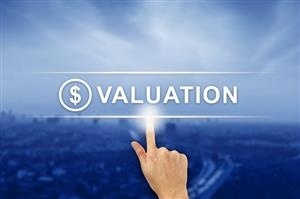
What is Seller's Discretionary Earnings (SDE)? As the wording suggests, it's a type of earnings or income that is calculated when a business is changing hands. But how is it different than other types of income you may see in the business world and how will it impact either your company or personal taxes, especially as it can impact a company's value as you enter the sale process. Here's a quick look into exactly what SDE is and how it can affect your finances.
What is Seller's Discretionary Earnings (SDE)? A Quick Look at this Earnings Type
Let's take a look at SDE based on each side of the equation during a business sale. If you're considering buying a business, the seller's discretionary earnings provides you with the information you need to develop an accurate prediction on your return on investment as well as get a better understanding on how realistic your expectations are of the business itself. For the seller, this calculation allows you to maximize your business' overall value before you get into sale negotiations. Preparing a business for sale can often bring up a range of various expenses which may or may not have an effect on a company's overall valuation. Understanding SDE allows you to make smart decisions while preparing to sell.
But how exactly is SDE calculated? If you've been following our blog, you may have seen the explanation of Earnings Before Interest, Taxes, Depreciation and Amortization (EBITDA) a few posts ago. SDE is a combination of EBITDA and owner's compensation. Here's a look at what is often considered to be part of calculating owner's compensation:
- The benefit expected to be given to one owner. As a standard part of this calculation, this is an adds one owner's compensation back. This is especially important when a share of a business or partnership is being sold. When several owners actively participate in operating the business, the calculation requires that projections be calculated to determine the value of the selling owner's effort and labor in the company.
- One-time expenses that were paid. These expenses cover a wide range of single purchases, but can include things such as a website design service, purchasing a specific license, an application fee for a particular service, benefit or membership as well as any number of other one-time expenses to the company.
- Non-business-related income or expense. Did you run consulting income through an e-commerce business? Was there a little extra time you took for personal time on a business trip? Maybe you charged your business rent for the cost of your home office. If you needed to put an automobile expense through your company when it doesn't typically need a car to do business, that's another example.
- Adjusted expenses. Let's say your business has a small website but also a large warehouse. The expense of the warehouse to fill orders must be adjusted as part of the website's expenses and is worked into the business' overall earning statements.
What is Seller's Discretionary Earnings (SDE)? By having the answer to that question, you gain a much better grasp of exactly how your business' finances function and what changes you can expect as a business changes hands. Understanding this type of income calculation means you can better understand how a company is being valued based on this type of income and how it will impact your final business value figure for the sale.